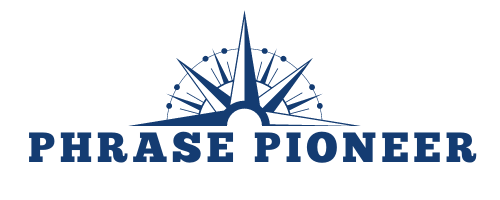20 Other Ways to Ask “What Are the Next Steps?”
Inquiries
What’s our subsequent course of action?
- Example: After wrapping up the meeting, Jake looked around the room and queried, “What’s our subsequent course of action?”
- Explanation: The phrase “subsequent course of action” is a more formal way of inquiring about the future plan or procedure to follow.
Can we discuss the forthcoming proceedings?
- Example: Upon reviewing the project’s status, the manager suggested, “Can we discuss the forthcoming proceedings?”
- Explanation: “Forthcoming proceedings” is a formal request for a discussion on upcoming events or actions.
What are we proceeding with next?
- Example: As the brainstorming session came to a close, Marie asked, “What are we proceeding with next?”
- Explanation: This phrase inquires into the next steps in a process, suggesting progression and continuity.
Proposals
How do we intend to move forward?
- Example: The team leader asked with an optimistic tone, “How do we intend to move forward?”
- Explanation: “Intend to move forward” requests the group’s intentions or plans for progressing.
What’s on the agenda moving ahead?
- Example: At the end of the fiscal quarter, the CFO inquired, “What’s on the agenda moving ahead?”
- Explanation: This phrase casually asks for the scheduled plans or items to be addressed in the future.
Shall we delineate the upcoming tasks?
- Example: With the project’s end in sight, the supervisor proposed, “Shall we delineate the upcoming tasks?”
- Explanation: “Delineate the upcoming tasks” is a proposition to outline or specify the tasks that lie ahead.
Clarifications
What’s the plan moving forward?
- Example: The newly appointed project manager confidently asked the team, “What’s the plan moving forward?”
- Explanation: This concise question requests information about the planned steps after the current point.
How should we tackle the future stages?
- Example: The mentor questioned his mentees carefully, “How should we tackle the future stages?”
- Explanation: “Tackle the future stages” implies a proactive approach to the upcoming phases of a plan or project.
What measures will we carry out next?
- Example: In light of recent changes, the committee leader probed, “What measures will we carry out next?”
- Explanation: Asking about the “measures” to be carried out requests details about specific actions or strategies to be implemented.
Suggestions
Can we chart the trajectory for going forward?
- Example: Eager to maintain momentum, the startup’s CEO offered, “Can we chart the trajectory for going forward?”
- Explanation: “Chart the trajectory” is a suggestion to plan or map out the pathway or plan to be followed.
What paths are we considering for our next move?
- Example: Pondering the crossroads ahead, the strategist asked, “What paths are we considering for our next move?”
- Explanation: Inquiring about “paths” being considered asks for the options or strategies under consideration for future actions.
How shall we strategize the upcoming phases?
- Example: As the deadline loomed closer, the production head pondered, “How shall we strategize the upcoming phases?”
- Explanation: “Strategize the upcoming phases” suggests intentionality in planning for the future parts of a project or plan.
Strategic Queries
What avenues should we explore next?
- Example: Reflecting on potential growth, the business analyst mused, “What avenues should we explore next?”
- Explanation: Asking about “avenues to explore” suggests looking into new opportunities or directions.
Which steps are priority moving on?
- Example: Keen on efficiency, the operations manager inquired, “Which steps are priority moving on?”
- Explanation: This question identifies which upcoming steps should be treated as most important or urgent.
Where do we go from here?
- Example: After the successful campaign, the marketing team leader asked optimistically, “Where do we go from here?”
- Explanation: This philosophical question prompts a broad reflection on future directions and opportunities.
Forward-looking Questions
What should be our focus for the next phase?
- Example: The lead researcher inquired after completing the study, “What should be our focus for the next phase?”
- Explanation: This question seeks guidance on what to concentrate efforts on in the subsequent stage.
How do we prioritize subsequent actions?
- Example: Knowing resources were limited, the non-profit director queried, “How do we prioritize subsequent actions?”
- Explanation: Asking how to “prioritize subsequent actions” seeks input on the order in which future actions should be taken.
Can we pinpoint the immediate priorities?
- Example: With a tough quarter ahead, the sales manager said, “Can we pinpoint the immediate priorities?”
- Explanation: “Pinpoint the immediate priorities” requests to clearly identify the most important tasks at hand.
By using this diverse array of phrases, one can navigate conversations about future planning with clarity, precision, and appropriate levels of formality. It’s essential to match the phrase to the context, whether in a corporate setting or a more casual one, to ensure effective communication.







